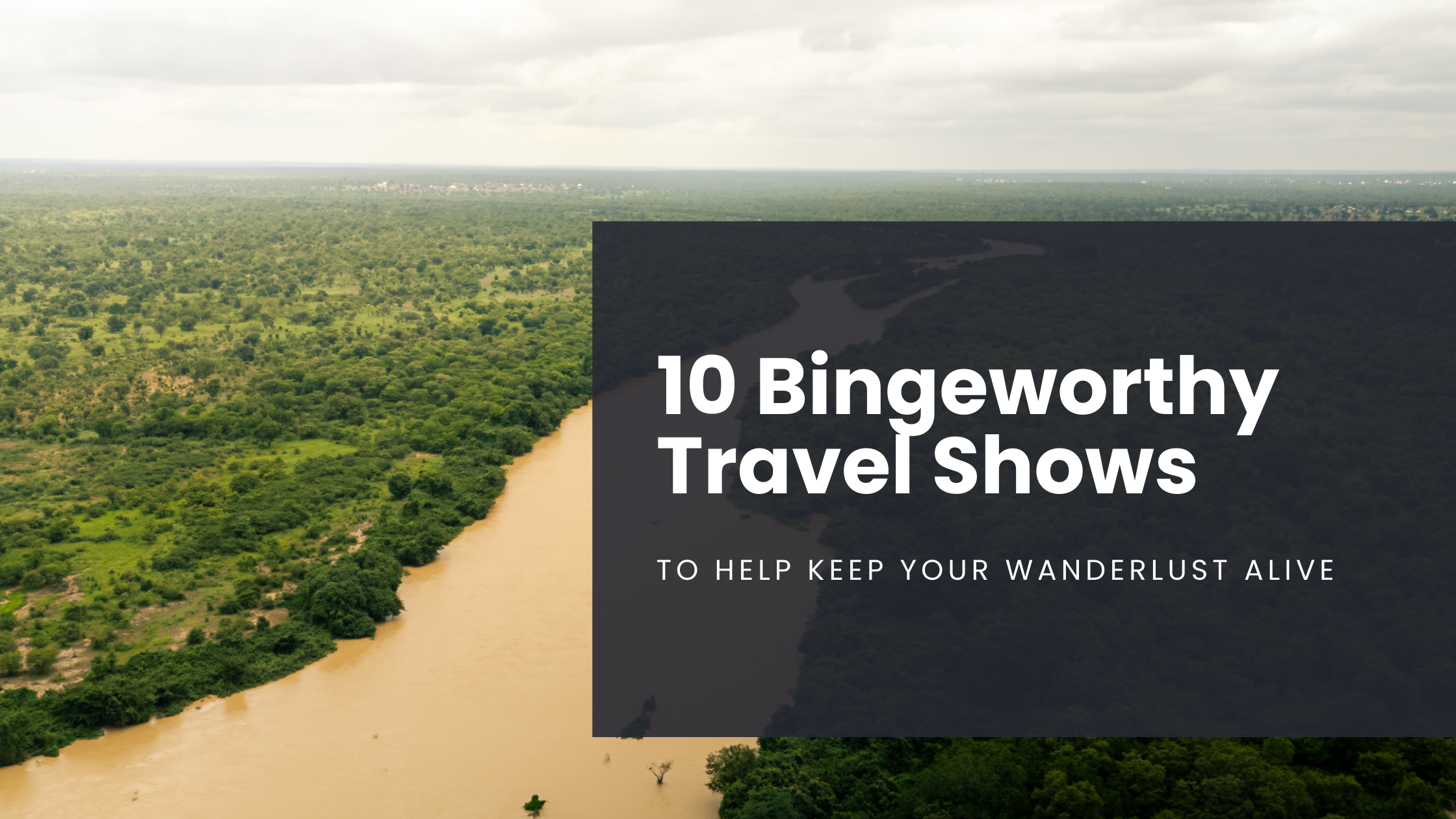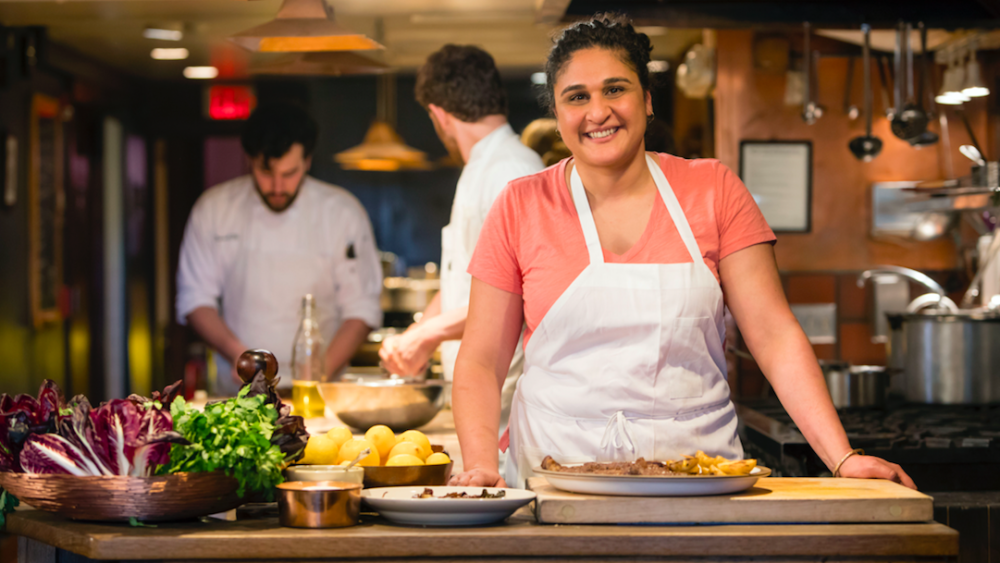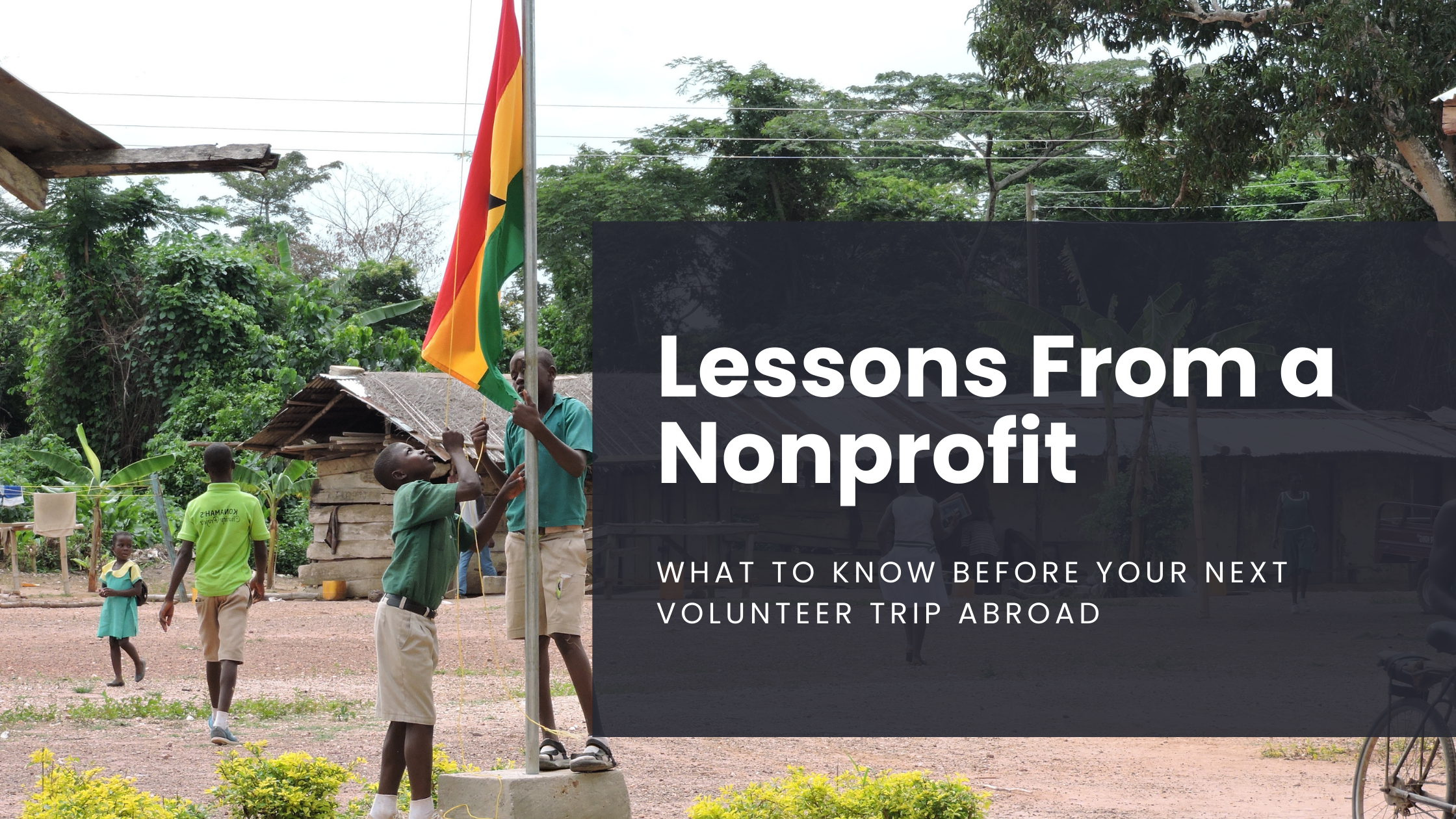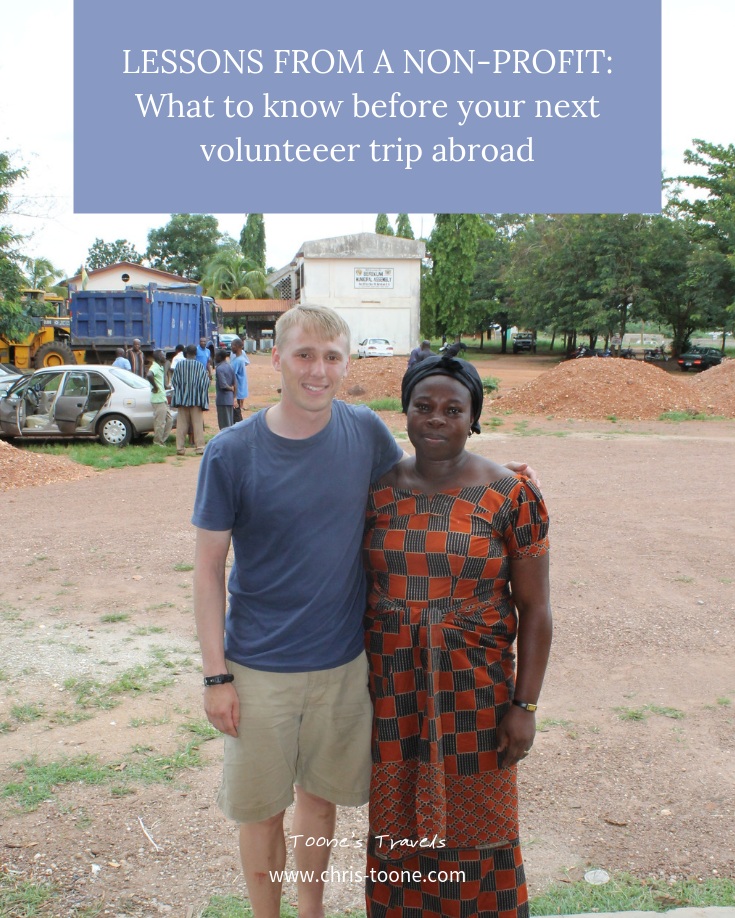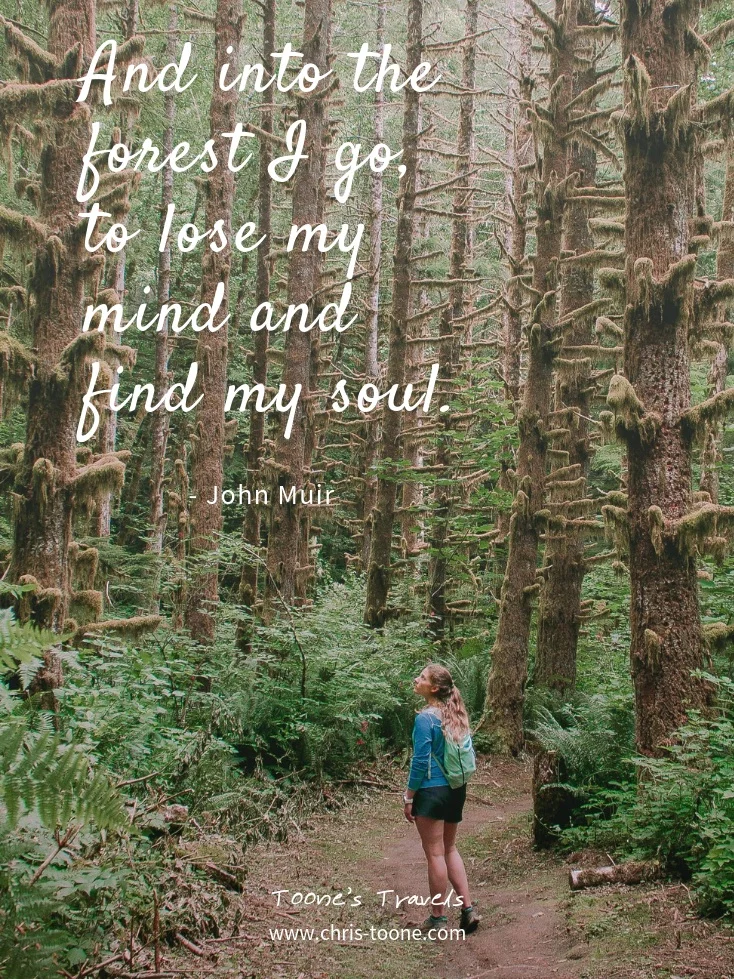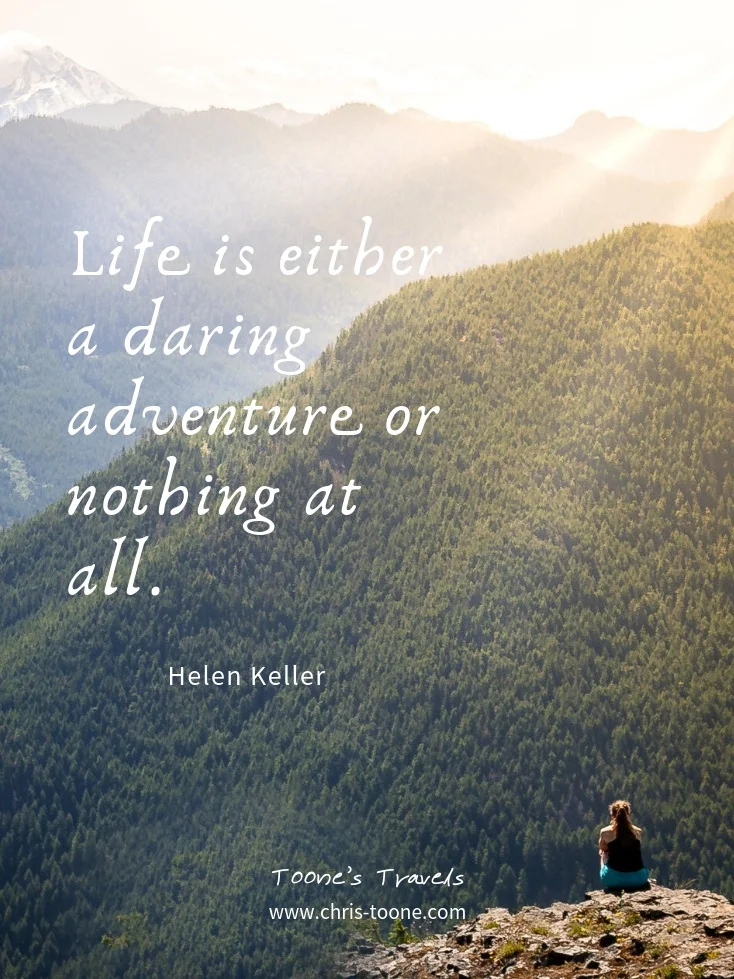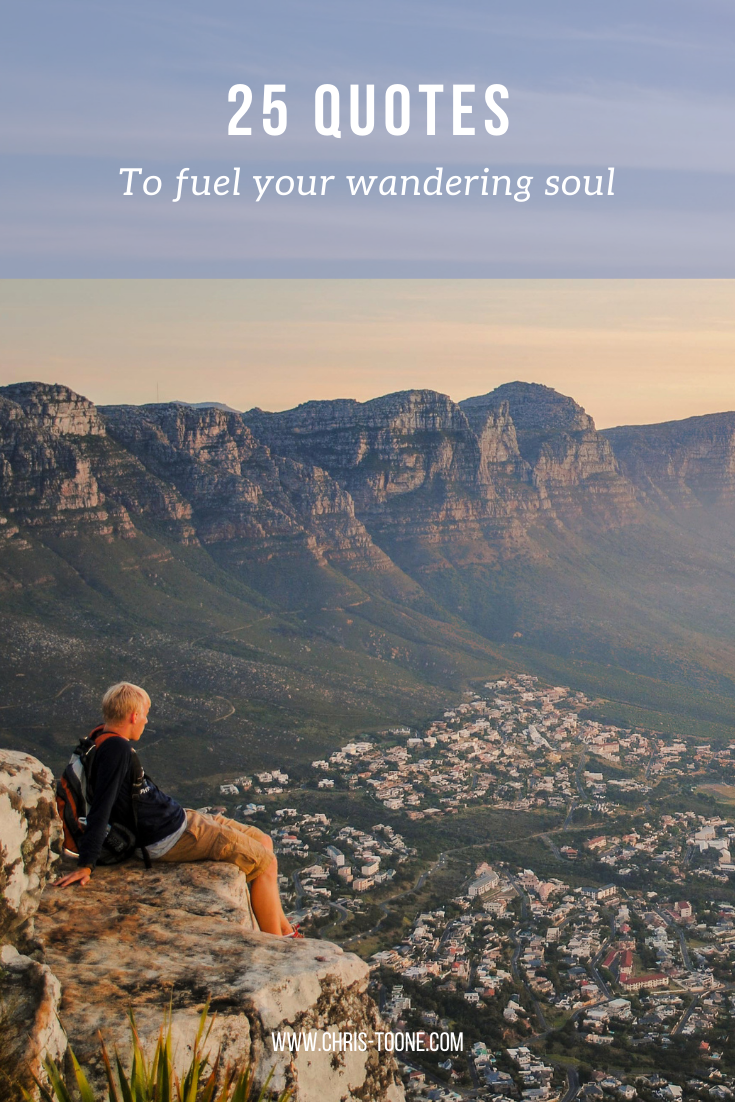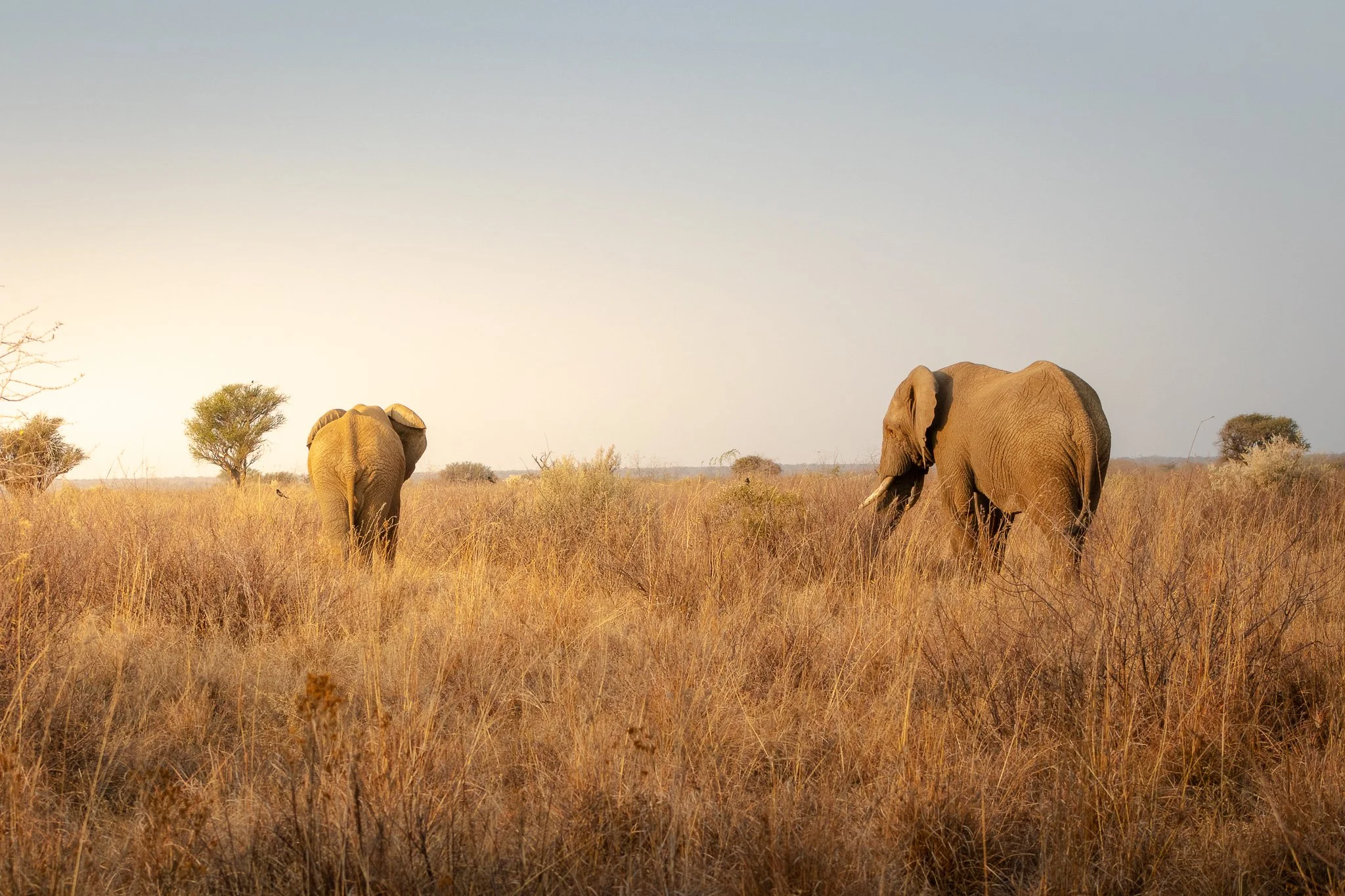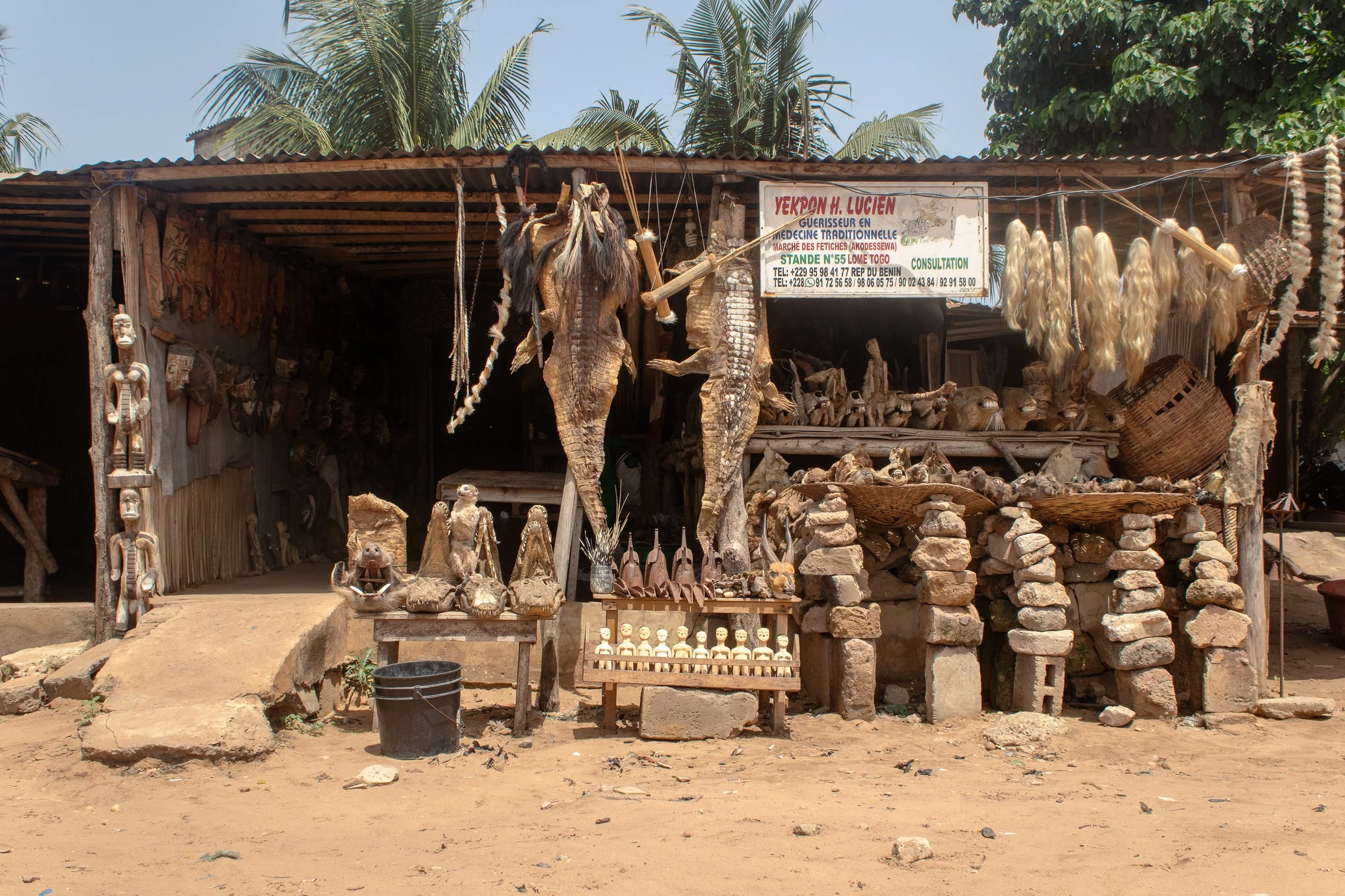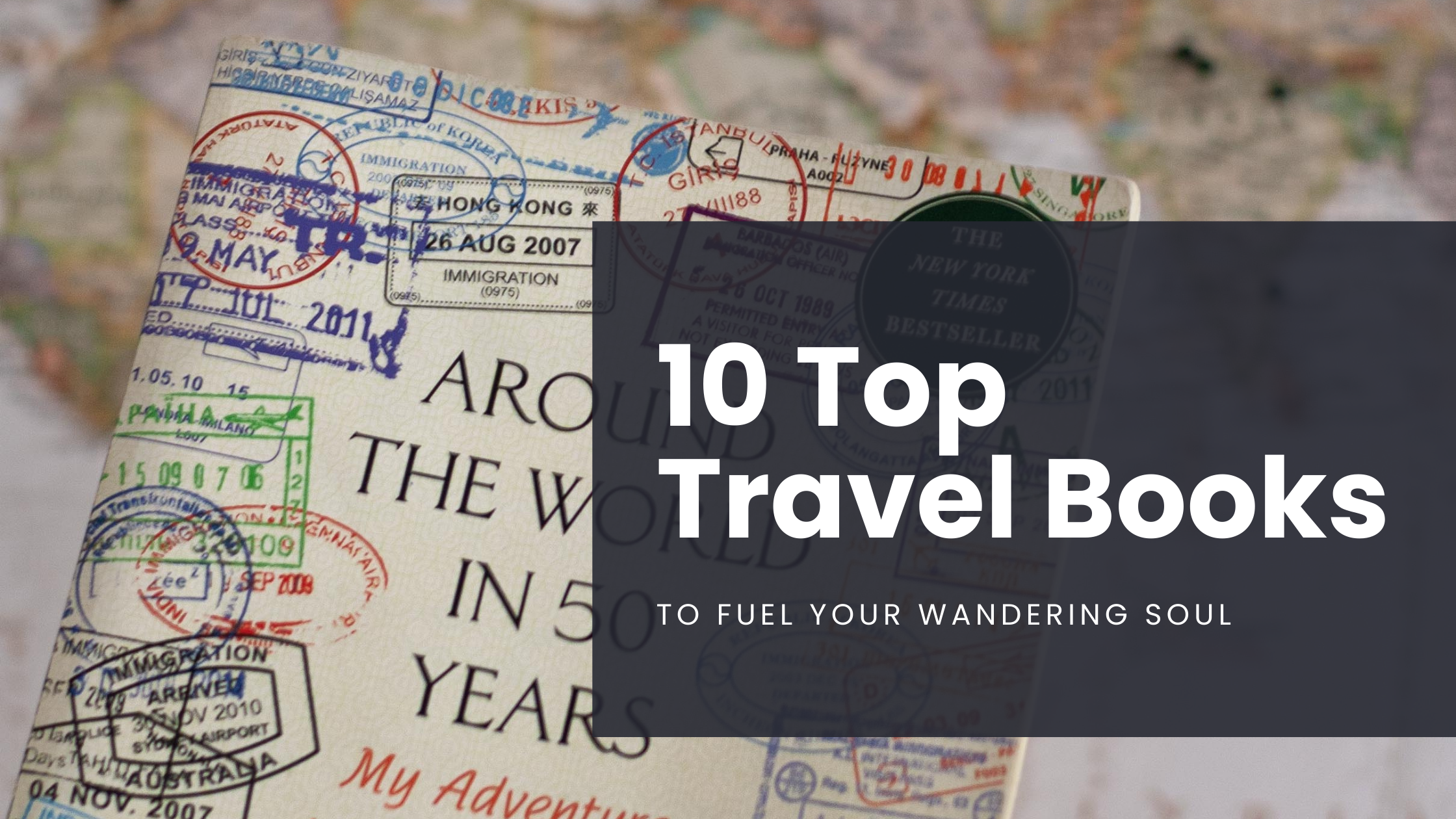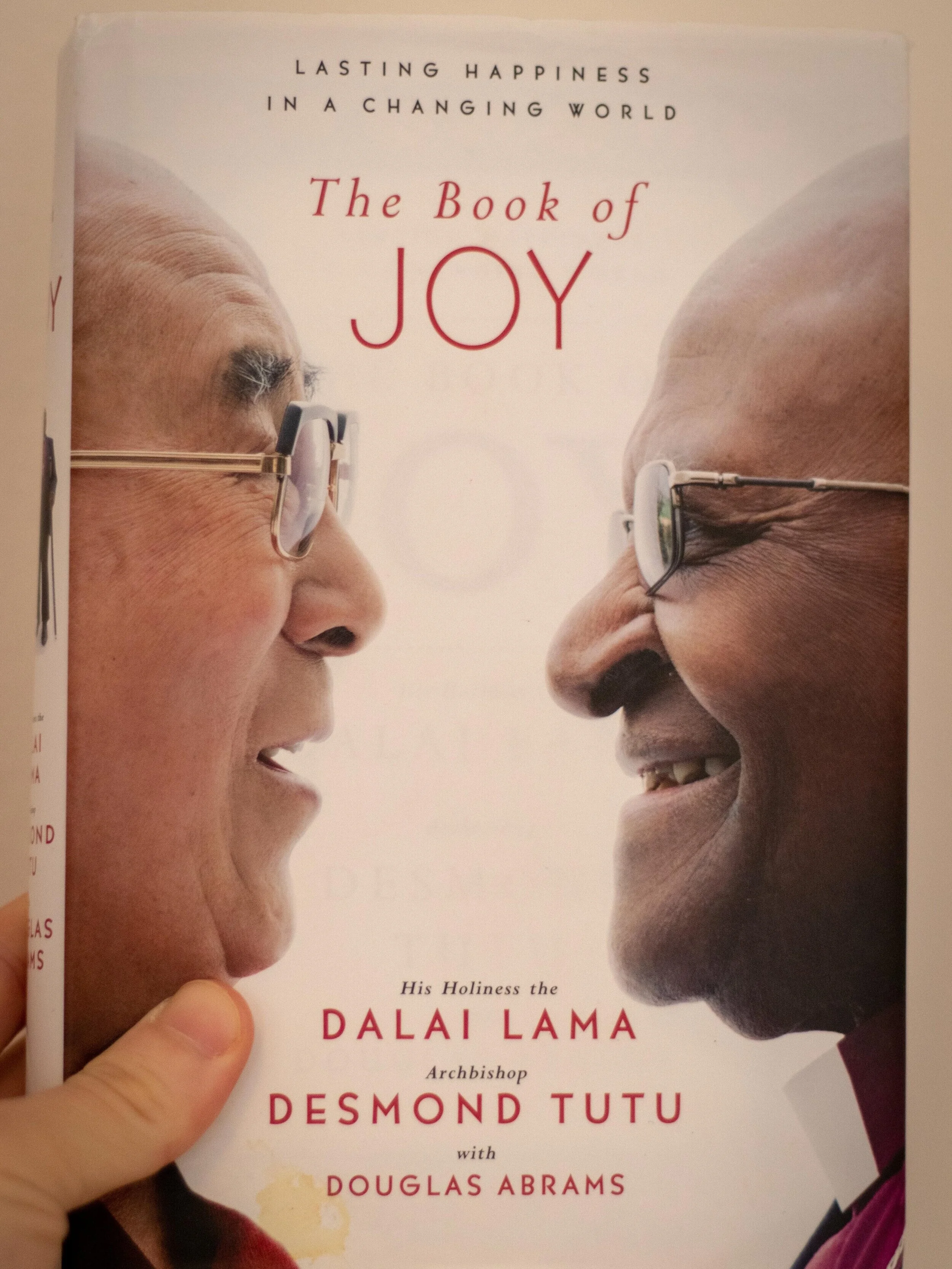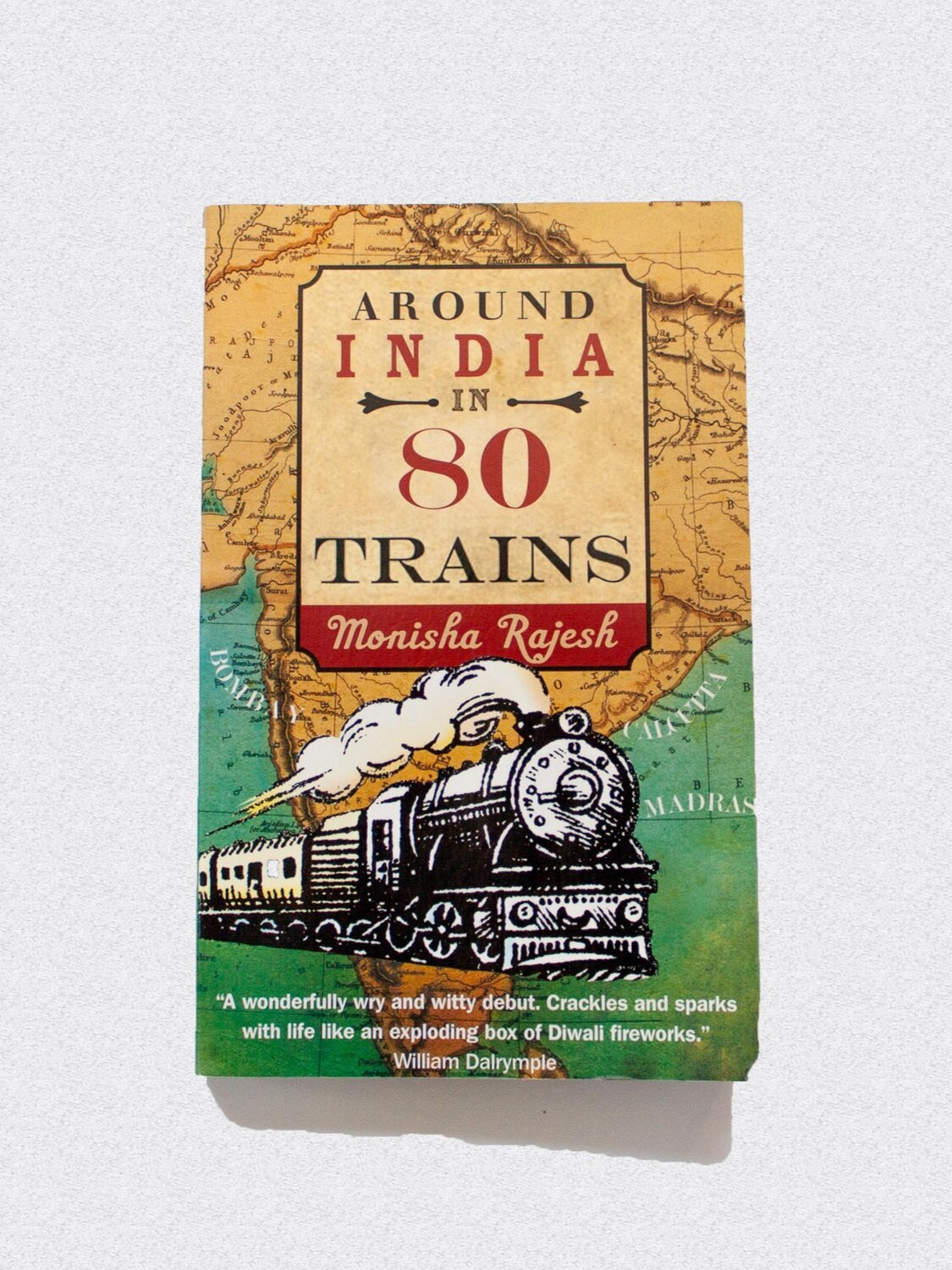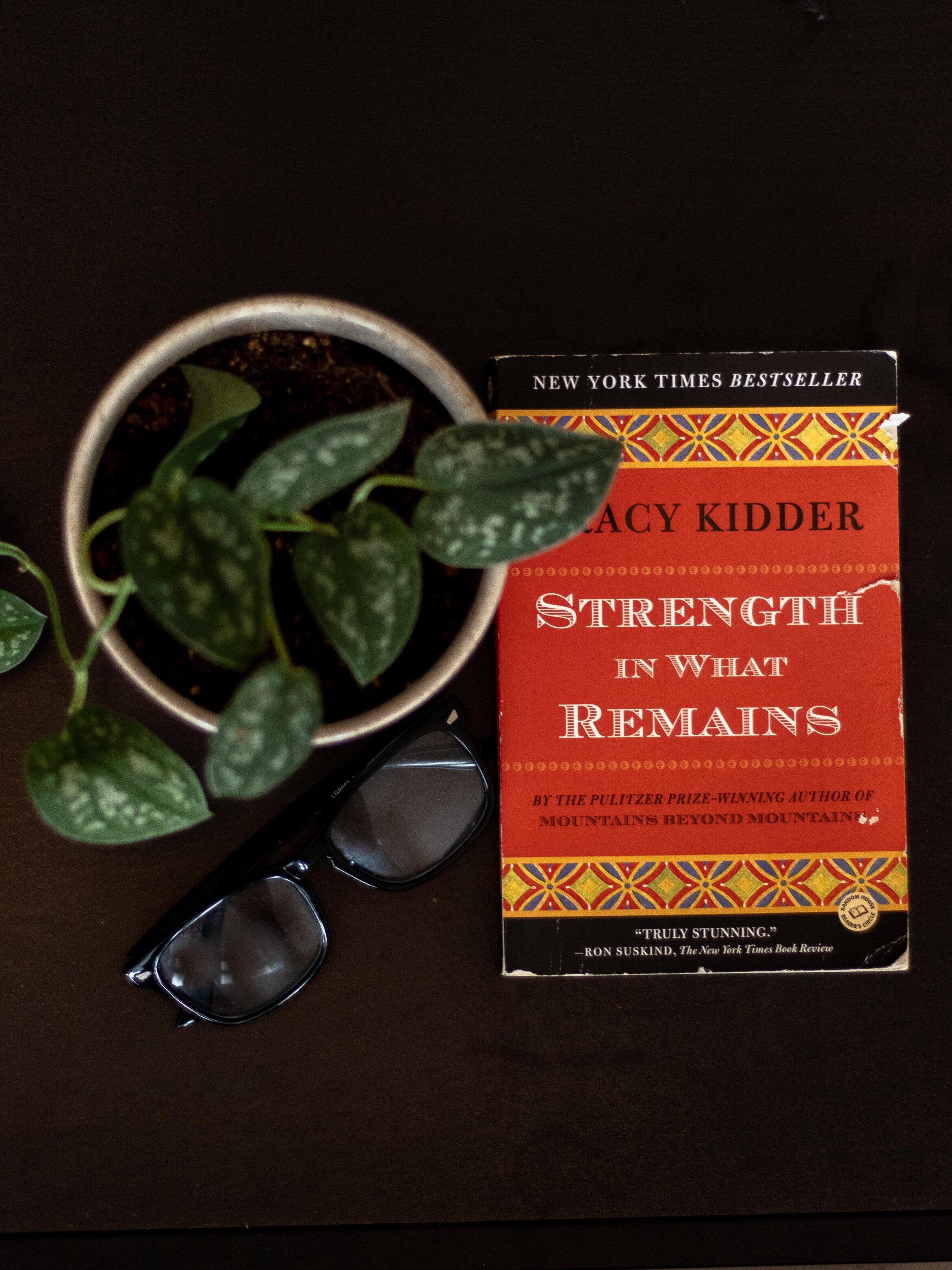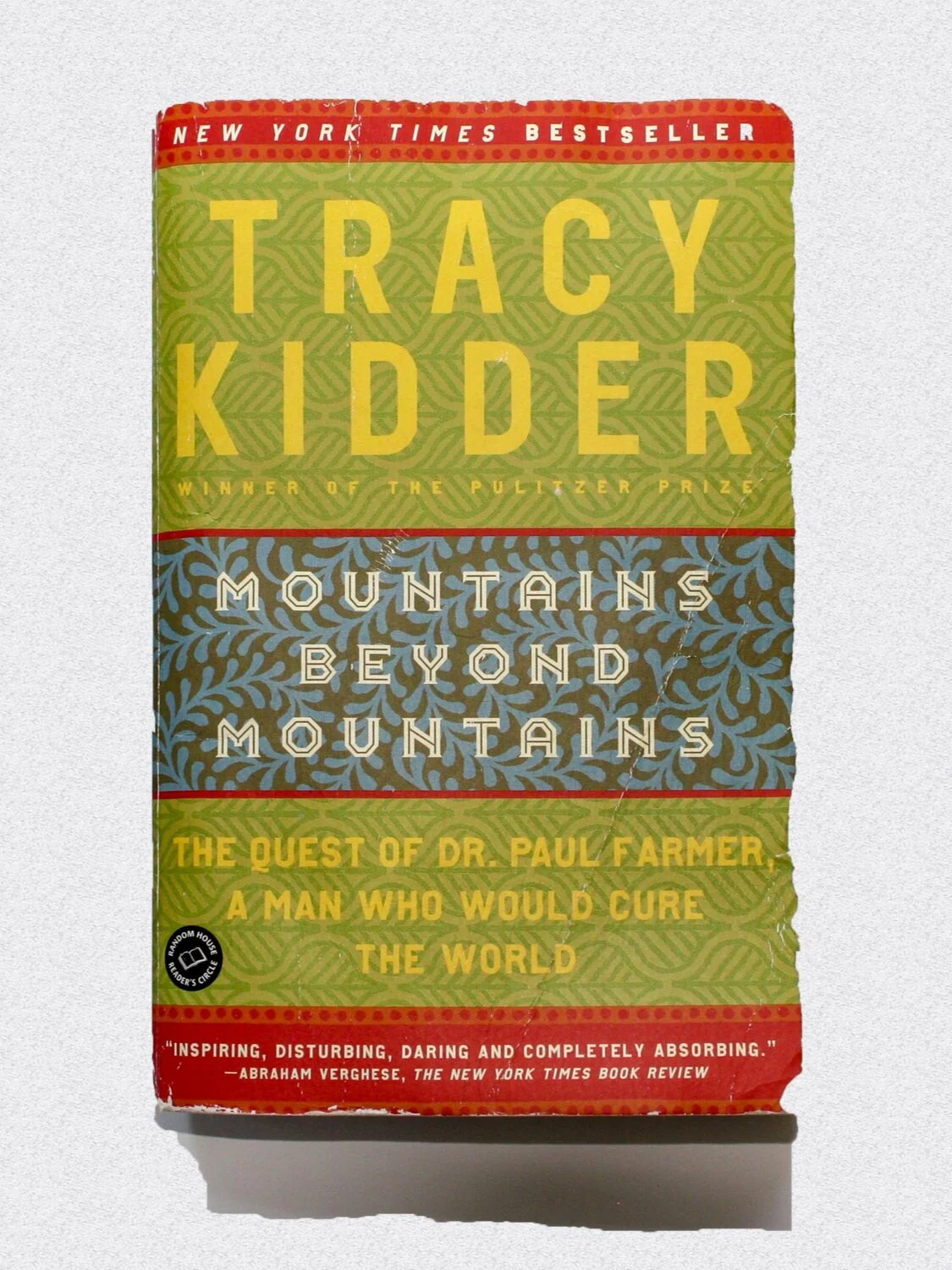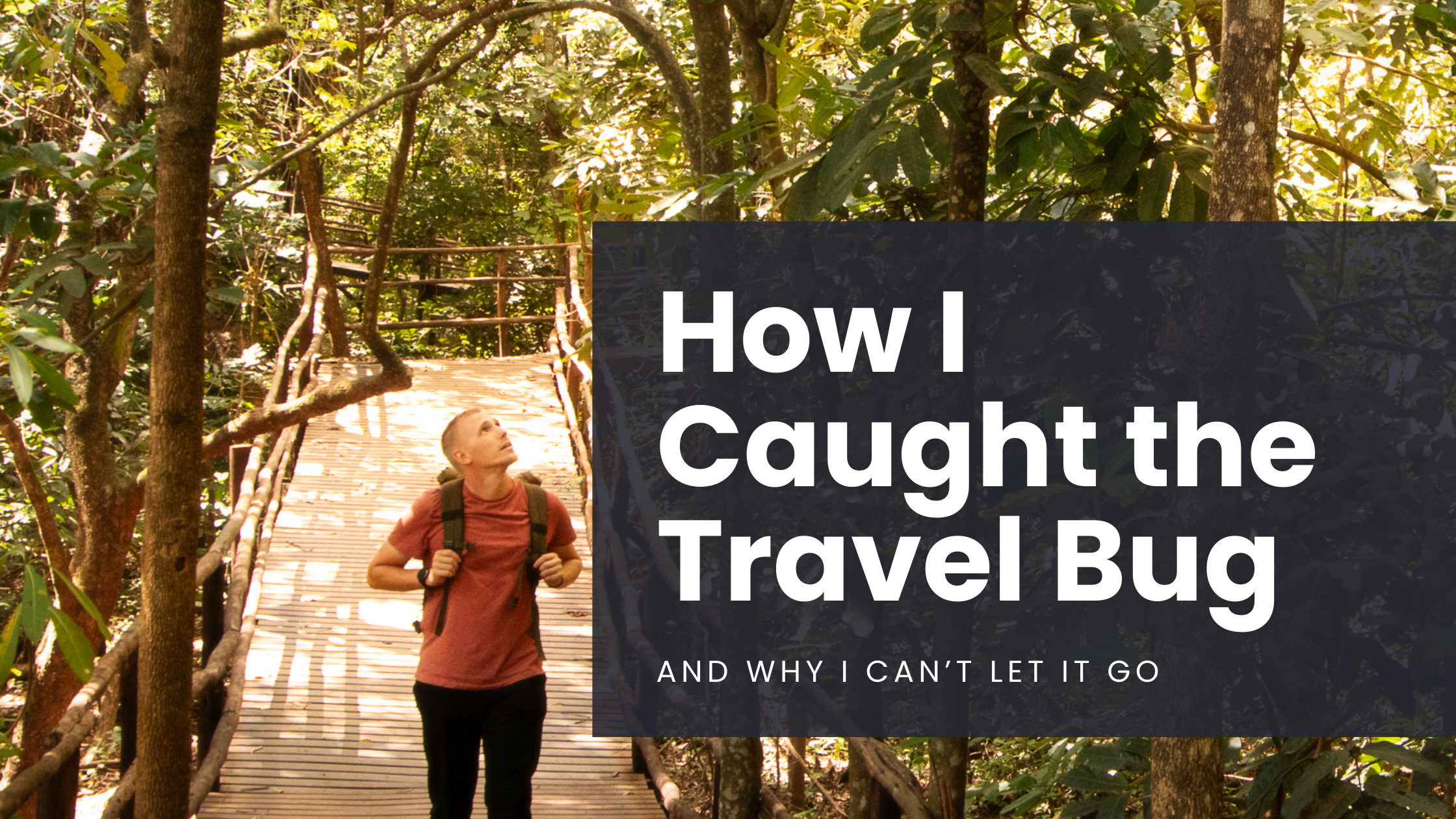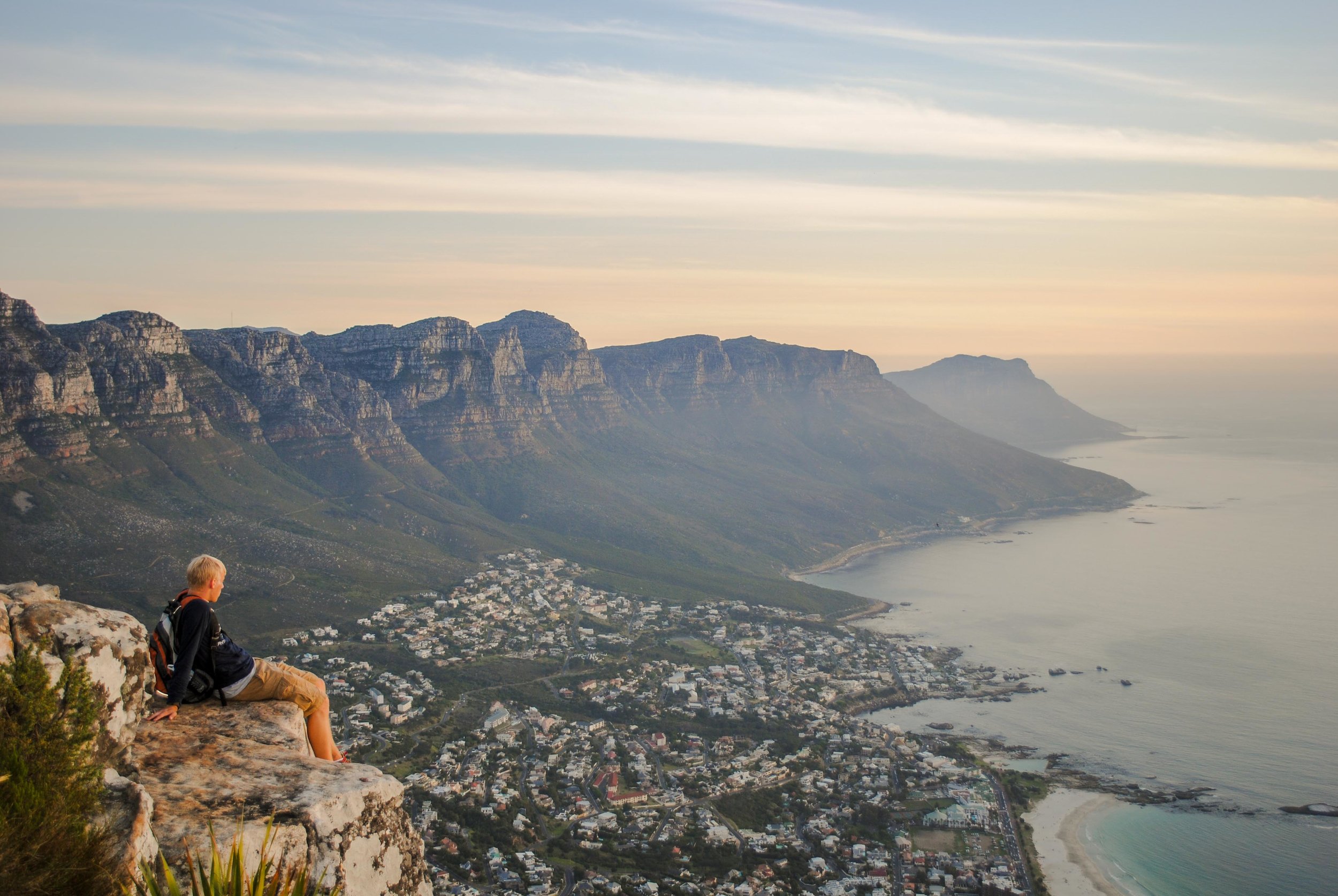10 Binge Worthy Travel Shows to Keep Your Wanderlust Alive
Quarantined at home but want to keep the travel bug alive? Here are 10 binge worthy shows that will provide that spark you need to keep wondering until we’re able to wander again. Cheers!
If your quarantine is going as well as mine, then congratulations on working your way through the new season of Ozark, a complete re-run of The Office, and all six seasons of Community! Now what?
No, the answer is NOT Tiger King and I’ll be offended if you even so much as think about suggesting it!
In all seriousness, there’s been a lot of creative ways to continue to “travel from home” and all of the streaming services that we’ve been relying on so much make it easier than ever to keep wandering this beautiful planet.
Here’s a list of 10 binge-worthy shows to stimulate your mind and pique your curiosity. Grab the popcorn and let’s dive in; happy travels!
1. THE KINDNESS DIARIES - Netflix
Photo credit: Deseret News
In a world that’s desperate for good news, let’s just cut to the chase: watch The Kindness Diaries on Netflix.
Leon Logothetis ships his vintage Volkswagen Beetle to Alaska and sets out on the journey of a lifetime as he drives from the last frontier all the way down to Ushuaia, Argentina while relying solely on the kindness of strangers.
Throughout his travels, Leon builds connections and, when the timing is right, spreads joy through the gift of opportunity whether it’s seed money for a non-profit, building an addition to a house, and or funding a street musician’s travels for a year.
Sure, there are definitely moments that feel scripted and it’s hard to tell if he actually relied only on the kindness of strangers from start to finish, but that’s not what makes the show so incredible anyways! It’s the adventure, stunning landscapes, and human connection that make it worth the watch.
Get ready to be filled with joy and hope; two things that we can always use more of in life.
2. SOMEBODY FEED PHIL - Netflix
Photo Credit: Eater
Combine a comedian with exotic foods from around the world and what do you get? Somebody Feed Phil!
In all honesty, I too would like a television show that not only allows me to travel the world but also ever-so-bluntly demands to be fed.
Follow Phil Rosenthal, the creator of Everybody Loves Raymond, on his quest for total enlightenment through food.
Ok, that description might be a bit much, but he does seek out some delicious destinations! Chowing down on crawfish in New Orleans, exploring the floating markets of Bangkok, and re-connecting with his heritage in Tel Aviv are just a few of his adventures.
It’s a far cry from the strict street food diet I so often follow during travels of my own, but it’s a great show to learn about the various origins of cultural cuisine and how local food scenes are adapting to the changing times.
Season 3, The Third Course, is released on May 29th and I can’t wait to dive in!
3. SAMANTHA BROWN’S PLACES TO LOVE - PBS Online
Photo Credit: Samantha Brown
Some may call it a blast from the past, but the truth is Samantha Brown never left the hearts of travelers and she’s back with a brand new series: Samantha Brown’s Places to Love.
The epitome of a traveler and a master of inclusion, Samantha bridges the oft-ignored gap between being a tourist and connecting with local culture on a deeper level.
Learn about the chicken & beer fad in South Korea, dip into the famed hot baths in Budapest, or start to plan your next adventure stateside. Whatever your budget, the show brings a variety of destinations, both in the USA and abroad, straight into your home.
All 38 episodes can be streamed for FREE at PBS.org, so bonus points for Samantha Brown!
4. THE AMAZING RACE - Hulu
Photo Credit: The Travel Channel
The Amazing Race is the only reality television show worth watching because it’s less about drama and more about the world.
Of course, the producers do a great job of pitting teams against each as all reality shows do, but it’s much easier to focus on the insane filming locations than the squabbles themselves. It’s doesn’t take much to get hooked as contestants soar high above the Swiss Alps, deliver goods through the hectic streets of India and race to make the next train, leaving nothing but blood, sweat, and a lot of tears behind.
Honestly, it’s the adventure we all dream of having.
The best part? Every single season is streaming on Hulu. That’s right, folks. You can take twenty-nine trips around the world by binging The Amazing Race.
Quarantine seems like the perfect time to begin crafting the next great audition tape and studying up on potential opponents, no?
5. STREET FOOD (ASIA) - Netflix
Photo Credit: Indulgent Eats
The moment I stepped inside of Gwangjang Market in Seoul I could feel the tradition oozing from halls. It wasn’t hectic like other places I’ve been around the world. No one was trying to usher my bum to their stall or waving menus in my face. This was different.
I didn’t know the extent of the untold stories here until Netflix released their Street Food documentary, chronicling the lives of street vendors around the world, including the Gwangjang Market of South Korea.
The nine-part series itself is a masterpiece of familial ties, deep-rooted tradition, and resilience while offering a rare glimpse beyond the packed stalls and smoke-filled air and into the lives of those who make it all happen.
Next time you find yourself engulfing a bowl of steamy pho on the streets of Ho Chi Minh City, pause for a moment to wonder about the story behind it. Chances are you won't be disappointed!
6. ANTHONY BOURDAIN: NO RESERVATIONS - Hulu
Photo Credit: Vietnam Travel
It’s difficult to find the words to adequately express how significantly Anthony Bourdain’s work has impacted my life. His ability to mix wonder with cynicism to create the perspective and humility required to explore and learn about the world is unmatched, especially in the travel television sphere.
He had a good run with CNN’s Parts Unknown and, to be honest, I will gladly ingest any piece of his work, but there’s something special about his original role with No Reservations.
What does this show have that others don’t?
There’s no gaudy facade, rather a travel experience that’s stripped to the bare bones of humanity. It can be difficult to watch at times but to see his reactions and how his experiences affect and ultimately transform him over time is what draws me in.
The rawness of it all makes it relatable and, especially now, we could all use a new lens to understand the world through. No Reservations is the gateway to a fresh perspective.
7. HOUSE HUNTERS INTERNATIONAL - Hulu
Photo Credit: The Toast
Anyone else in the “ex-pat wannabe” club or is it just me?
Either way, House Hunters International is the perfect mindless binge while still satisfying that nagging dream of owning a beach house in the Caribbean. After all, it’s always fun to reminisce about the life that was just one lottery number away from coming true!
It’s inevitable that the lure of living through these lucky travelers will wear off so when the interest levels peak and jealousy and contempt rear their ugly heads (come on Karen, you can paint a wall… just pick house #3 already), there’s only one proper solution: the House Hunters International drinking game.
Let the house tours (and drinks) begin!
8. INTO THE OKAVANGO - Disney+
Photo Credit: Disney+
Into the Okavango is a modern-day exploration film for the ages, spanning four-months, 1,500-miles, and three countries.
The goal? To save the Okavanga Delta, one of Earth’s final wetlands. During my first viewing of the documentary, I was simply in awe of the stunning scenery.
It was certainly enough to get the wanderlust juices flowing and as I closed my eyes that night I couldn’t help but visualize just how much of the world is still untouched.
The second time though, the incredible story of this band of first-time international explorers came to light as they mapped previously unknown landscapes while overcoming a treacherous journey for the greater good and protection of both animals and humans alike.
Truly an inspiring story and a great flick for a family movie night!
9. SALT, FAT, ACID, HEAT - Netflix
Photo Credit: Variety
Sharing the title with her New York Times bestselling book Salt, Fat, Acid, Heat, Samin Nosrat opens the door to the culinary world that often feels closed to travelers that are passing simply passing through.
It’s a must-watch series for culinary artists as Samin travels the world and explores the four basic ingredients to delicious food, but it’s equally enjoyable for those clumsy cooks in the kitchen, such as myself.
My personal favorite is her trip around Japan, exploring the role of salt in two key ingredients of cooking that both have a deep-rooted tradition: miso and soy sauce.
Get ready to learn some new recipes to try during quarantine after binging Salt, Fat, Acid, Heat!
10. BIZARRE FOODS - Hulu
Photo Credit: The Travel
Is it possible to name a show more aptly than this? Probably not, although I suppose The Amazing Race is pretty spot-on, too.
From beef lungs in Panama to tuna eyeballs in Japan and even jellied moose nose in Canada, Andrew Zimmern gives even the most open-minded eaters a run for their money while simultaneously assuring those that are picky that they made the right choice. He’s living proof that the slimy creature you saw squiggling around the market will not kill you and, in all likelihood, will taste delicious.
Whether gearing up for a game of food roulette on my next adventure or simply living vicariously through a man that quite literally gets paid to eat his way around the world, this is a timeless show that’s guaranteed to expose viewers to how vastly different the world can seem through food, yet how interconnected it is through human connection.
Bon appetit!
What’s your go-to travel shows? Are they any great ones that I’ve missed? Let me know in the comments below!
Stay safe, healthy and, above all else, wash your hands! Hope you and your loved ones are safe.
Pin this post!
Lessons from a Non-Profit: What to know before your next volunteer trip abroad
Voluntourism is a booming part of international travel, but it doesn't come without its pitfalls. It’s more important than ever that we educate ourselves as donors and volunteers in order to evaluate how effectively our time and money is being used abroad. Here are 9 lessons you should know before your next volunteer trip that I’ve learned after nearly a decade of working with a non-profit in Ghana.
A combination of volunteering and tourism, voluntourism offers young and passionate travelers an opportunity to partner with organizations around the world while giving back along the way. Simply put, it’s a great way to make a difference… or is it?
This new niche of volunteering has taken off in recent years. NPR reported that in 2014 more than 1.6 million tourists were spending upwards of $2 billion to travel the world and visit non-profit organizations, all in hopes of enacting change. These numbers have only continued to grow.
Just as with any other fad - i.e. social media, blogging, etc. - the market becomes saturated, often leading to a myriad of problems that comes at the cost of the consumer or, in this case, the volunteers. A simple search across the internet will uncover an emerging theme: quality programming from non-profit organizations is becoming easier to embellish as they make an effort to “keep up” with the demands of voluntourism. Unfortunately, these operations can often cause more harm than anything else within the communities they serve, even despite good intentions.
Image courtesy of www.giveaya.org
In November of 2018, Reuters published an article about an Australian lawyer, Kate van Doore, who arranged to take over an orphanage in Nepal only to realize that the children she thought she was helping weren’t orphans at all. As it turns out, the kids were removed from their homes, provided a fake identity, and exploited for profit. All for the sake of creating a scenario where scammers could prey on the pockets of foreign volunteers. Can you imagine the thoughts that ran through Ms. van Doore’s head as a child came up to her and asked to go home to his mom?
The sad reality is that this is not an isolated incident. A quick Google search of “fake orphanage” will disclose the top 3 hits - Nepal, Uganda, and Cambodia. Unfortunately, as the rate of volunteers grows, so too will the establishment of these “orphanages.”
In a more recent incident that sent shockwaves around the non-profit world, ABC News reported on a case in which the founder of an organization, Renee Bach, is being sued in the Ugandan Civil Court for allegedly practicing illegal and unlicensed medical care, leading to the deaths of 105 children. The article cites her reasons for starting the non-profit in 2010: A 19-year old Renee decided that it was something she was “supposed to do,” so she picked up and moved to Uganda with no plan. This feeling of enlightenment quickly transformed into clouded judgment, going as far as serving as the primary caretaker for severely malnourished children, hooking up IVs, administering blood transfusions, and more - all without any medical training.
These heartbreaking stories are the unintended consequences of people yearning to “do good” in the world, unaware of the impact their actions have on those around them.
It’s clear that voluntourism is here to stay, so how can we, as travelers, evaluate the ethics of the organizations that compete for our time and money? It’s not easy, but it can be done.
We must first obtain the necessary knowledge that allows us to critically evaluate how these non-profits are accomplishing the “good” they claim. Only then can we begin to enact change.
Here are 9 lessons that I’ve learned through nearly a decade of working in Ghana with Aya. I hope they will help you to better understand, navigate, and critique the practices of any non-profit organization you come into contact with during all of your travels and volunteer experiences!
1. PEOPLE ARE NOT A CHARITY CASE
It’s easy to have our vision clouded by the desire to leave a mark on the world, but we must remember how important autonomy is to all of us as human beings. Would you be happy if someone you’ve never met showed up on your doorstep simply because they felt you needed help and they should be the ones to provide it? No, probably not.
Once you donate a dollar or volunteer your time, you become a stakeholder in the organization. Dig deeper. How are they treating the beneficiaries? Is it a case of westerners going into a community with a preconceived notion that their help is needed, or is it a “back seat” organization that tries to collaborate with locals wherever possible?
The greatest piece of advice I can offer is to flip the script and put yourself in the shoes of the receiver. If this non-profit was serving you, would you feel respected and welcome them into your community or would you shut your door?
2. NO ONE HAS ALL OF THE ANSWERS
If you’ve traveled at all, then I’m sure you realize just how diverse different cultures around the world are. This is a beautiful thing, but be aware that it creates unique hurdles that any solution to even the simplest of problems must overcome. Who do you think is better equipped to handle a multi-layered obstacle within the community - a local that has been living there for 30 years or a teenager from America that’s volunteering abroad for the first time? A non-profit must know their limitations, both as an organization and as individual employees.
Make sure any group that you donate or volunteer with isn’t biting off more than they can chew. How does their history equip them to handle their current projects? How do they approach their programs, more specifically, do they develop key partnerships with experts in a certain field or do they try to do it all on their own? These are important questions to ask. For example, no one within Aya is an expert in global health, but we, along with community members, recognize that improvements must be made to keep students happy and healthy. As a result we work towards partnering with other local organizations such as Days for Girls Ghana.
If you ever find yourself in a volunteer situation that you feel is beyond your skillset, don’t be afraid to speak up. By staying silent you may unintentionally harm the people you are trying to help!
3. INVEST IN COMMUNITY STAKEHOLDERS
We’ve already covered the importance of non-profits treating any human beings as an equal, but it’s just as vital for organizations to INVEST in these same people. The most successful programs are the ones with a sound framework of community members.
When people feel involved and empowered, great things happen. So, does the organization you plan on volunteering with have an infrastructure on the ground with whom they are working and communicating with regularly? Will you have the opportunity to work alongside local staff that are bettering their community? It’s important to learn the operations you’ll be a part of before booking your ticket.
Image courtesy of www.giveaya.org
4. SUSTAINABILITY IS THE ULTIMATE GOAL
This is easier said than done and its complex nature is affected by most of the talking points made in this post. With that being said, it’s an important aspect of any evaluative process for every organization. Sure, a non-profit can bring in volunteers, make a quick buck with trip fees, and keep the cycle going. But what sets successful organizations apart is what they do AFTER volunteers work on programs and leave. How are they kept afloat? Who is overseeing them? Are they setup for sustained success - both internally as an organization and within the communities they serve?
Take the Uniformed Hope campaign I ran in 2011 with Aya, for example. Early on, we had identified accessible school uniforms as a major barrier to students attending classes. In Ghana, uniforms exude a sense of pride. If a family can’t afford one, it’s not uncommon for the student to skip school. Our team developed a simple solution: donors give $15 and we provide a school uniform for a child. Within a month we had raised enough money to purchase uniforms for every student at the village school, increasing attendance! We felt so much pride in the work we had done, but what we failed to consider was the future of the program. Donors had given one-time gifts, meaning we were operating on a limited budget that was quickly drained. What would happen when students outgrew their new uniforms and couldn’t afford replacements? As a result of our lack of foresight, enrollment decreased at the beginning of the following academic year. We learned that we had to think big picture - consider all options and all potential effects - to make the program effective. At the end of the day, the community worked together to create a “hand-me-down” program, recycling uniforms through the grade levels regardless of if it had been provided by our efforts.
The question that we always ask ourselves as an organization is how will our decisions either enable or inhibit the growth of those that benefit from our programs if Aya ever ceased to exist? Will our efforts continue transforming lives or will they fail? It’s important to keep this in mind as a donor. Sure, your money can make an immediate improvement almost anywhere, but it’s much more effective to ensure a LASTING impact.
5. LISTEN, EVALUATE, ADAPT, REPEAT
Many times when people learn of my work with Aya they commend my efforts and then get confused as to why I brush it off. The truth is, I’ve done very little on the ground in Ghana. Rather, 95% of my time is spent listening to parents, teachers, and our in-country volunteers, then re-evaluating our programs and adapting as best we can. It’s a constant cycle that never ends.
All too often organizations birth their vision with a fixed mindset, failing to create a platform for any collaboration and adaptation. This inability to morph ultimately prevents sustainable change, causing more harm than good in the long run. Listening is key, so make sure you understand how the organizations you work with incorporate this into their day-to-day work. It should be a major part of how they advance their mission!
6. NEVER LOSE SIGHT OF THE BENEFICIARIES
Organizations are constantly tip-toeing across an invisible tight rope. On one side is the volunteer experience, while on the other is the integrity and sustainability of their work at the ground level. Leaning too far in either direction can lead to problems.
Yes, I get it. When volunteers feel comfortable, connected and have a good time, they often return home feeling empowered and ready to spread the news about an organization’s work. Catering to them certainly has its benefits. After all, the volunteers are the same people paying the extra trip fees that fund the projects and programs on the ground. But at what cost? At what point does it actually take away from the people they meant to help?
It’s important to know if the organization you choose to partner with takes precautions to maintain the integrity of the community in which they work, or if the programs they’ve created have led to a revolving door of volunteers. Sure, playing with kids in an orphanage for a month sounds fulfilling, but what happens when the children become attached, you leave, and they never hear from you again? It’s hard to think about, after all, you never meant to break someone’s heart, but it happens more than we realize.
Sometimes decisions from organizations are unpopular, but it’s important to consider them from both sides of the tightrope. For instance, The Senase Project rarely brings unattached volunteers on trips, let alone operates full-fledged service trips. This isn’t because we want to isolate the community or hinder the donor experience, rather we aim to protect the relationships and trust we’ve been able to curate over the past decade of work. They are essential to how we ensure sustained success.
Find an organization that consistently walks this line with grace and poise while keeping their eye on the ultimate goal: serving the people.
Image courtesy of Aya, www.giveaya.org
7. HOW YOU GIVE MATTERS MORE THAN YOU THINK
As the saying goes, give a man a fish and you feed him for a day; teach a man to fish and you feed him for a lifetime. It often contradicts our natural instincts to say no to someone in immediate need, however, it’s important to understand how the specific way in which we give can lead to different outcomes.
Hypothetically, let’s say that John, a teenager that you met in a remote village during your travels, asks for $20. He says it’s for books for school. You oblige. How can you be sure that it’s used with your intent in mind? Maybe his parents took it for something else. Maybe he doesn’t even attend school and instead pocketed it for later. Oh well. What’s done is done. Once you leave the village, you’ve stayed in touch with John and when the next term rolls around he approaches you again. You struggle to say no. After all, $20 isn’t a lot to ask, so the cycle continues. Other people in the village take note of what John has done and now wait for the next foreigner to visit so that they can replicate the process. What once started as an innocent $20 has now quickly snowballed into something more.
I am in no way advocating for you to NOT donate to those in need. I am simply encouraging you to start to consider HOW you are doing so. Something that may seem insignificant can wreak havoc in the grand scheme of things. Before you write that next check, take a moment to learn how your money is utilized and dispersed on the ground.
8. YOU CAN’T HAVE A SOLUTION IF A PROBLEM DOESN’T EXIST
This lesson goes back to knowing your limitations and treating people as equals rather than a charity case. Unfortunately, it’s not uncommon for individuals to move to Africa and start a non-profit simply because it’s a place that’s portrayed as needing drastic amounts of help. But who are we to say what should be a priority within a community in which we don’t belong? Do we even have the right to determine who needs help and who doesn’t? I’m sure as hell not comfortable standing in front of a village of people that live on $1/day and forcing my own thoughts, ideas, and priorities upon them.
If an organization is truly going to help, they must first listen, collaborate, engage, and learn. It is during this process that they will uncover how best to utilize their skills. With The Senase Project, I have witnessed that over time, these relationships become mutual as community members begin to value what we have to say just as we do with them. This is when constructive solutions to complex problems are formulated and, in turn, become more sustainable.
Don’t jump the gun simply because an organization’s mission sounds good on paper. It’s much more pertinent to learn how they turn that vision into a reality; do your homework and make sure to keep your ears open along the way.
Image courtesy of Aya, www.giveaya.org
9. YOUNG & PASSIONATE IS NOT A QUALIFICATION
It might sound blunt, but it’s important to take a step back and remember that although helping others feels good on the inside, it can actually cause more harm than good if not done the right way. Before you go on your next volunteer trip, take a moment to reflect on your strengths and weaknesses. Consider what skills and passions you hold that people might benefit from. Use that information to find an organization that fits you, not the other way around.
At the end of the day, it’s important to realize that the communities in which non-profits work aren’t a place to “try something new” or boost your self-esteem; they are real people with real problems. Instead of trying to play the role of “Mr. Fix It”, go into each experience with a learning mindset. You might be surprised as to what the people can teach you!
The non-profit sector is expansive, but the more informed we are as investors, the higher the standards we can demand. This will ensure that the respect, sanctity, and autonomy of every community around the world remain acknowledged and protected.
It’s easy to see that all of these lessons are intertwined with one another. Collectively, they help to combat any negative and unintended consequences that may arise from trying to help others. I hope that they may help guide you in leaving your mark on the world in the most effective and sustainable way possible.
Thanks for reading!
What have been some of your experiences with non-profits? Have you ever volunteered abroad? Comment below and share your story!
Until next time, stay safe & happy travels!
Find this post helpful? Pin it and share with others!
25 Quotes to Fuel Your Wandering Soul: It's time for your next adventure
When I’m feeling stuck in the hustle and bustle of everyday life, I turn to these quotes to put my head on straight and inspire my next great adventure. In the very least, I hope by posting them here they might spark something in you, too. After all, the world is waiting… all we need to do is get up and go. Here are my top 25 quotes to fuel your own wandering soul!
When I’m feeling stuck in the hustle and bustle of everyday life, I turn to these quotes to put my head on straight and inspire my next great adventure. In the very least, I hope by posting them here they might spark something in you, too. After all, the world is waiting… all we need to do is get up and go. Here are my top 25 quotes to fuel your own wandering soul!
1. “And into the forest I go, to lose my mind and find my soul.” - John Muir
2. “ Travel changes you. As you move through this life and this world you change things slightly, you leave marks behind, however small. And in return, life - and travel - leaves marks on you. Most of the time, those marks - on your body or on your heart - are beautiful.” - Anthony Bourdain
This is one of my favorite quotes of all time. Sometimes those marks are beautiful, and sometime’s they’re not. I’ve returned from trips with more questions than answers at times. But that’s ok. It’s all part of it. It makes me a better person in the long run and for that, I am eternally grateful.
3. “The life you have led doesn’t need to be the only life you have.” - Anna Quindlen
How often do we feel stuck in the perceived direction of our lives? Probably too many times than we’d like to admit. I know that’s the case for me, at least. But it’s during those times that we forget to look around us. There are no guardrails on this path. There’s nothing to keep us moving in a linear and forward direction other than what society engrains in us. It’s ok to veer elsewhere for a bit and eventually, you’ll find your way back.
4. “No one realizes how beautiful it is to travel until he comes home and rests his head on his old, familiar pillow.” - Lin Yutang
5. “Life is either a daring adventure or nothing at all.” - Helen Keller
6. “All journeys have secret destinations of which the traveler is unaware.” - Martin Buber
7. “Do not follow where the path may lead. Go instead where there is no path and leave a trail.” - Ralph Waldo Emerson
8. “If you’re twenty-two, physically fit, hungry to learn and be better, I urge you to travel - as far and as widely as possible. Sleep on floors if you have to. Find out how other people live and eat and cook. Learn from them - wherever you go.” - Anthony Bourdain
9. “A good traveler has no fixed plans and is not intent on arriving.” - Lao Tzu
Throughout life, we’re taught that anticipation breeds success. If you want to get to the top then you must know what people want before they know it themselves. Traveling is different. The more you anticipate, the more you open yourself to frustration and letdowns. What happens when your picture-perfect itinerary is derailed by a broken-down bus? What happens when a canceled flight pushes your departure by a day? React and adapt is the name of the game. Sure, it’s always good to have an idea of things you’d like to see and do but be flexible. You never know where the journey may take you!
10. “We live in a wonderful world that is full of beauty, charm, and adventure. There is no end to the adventures we can have if only we seek them with our eyes open.” - Jawaharial Nehru
11. “Twenty years from now you will be more disappointed by the things that you didn’t do than by the ones you did do. So throw off the bowlines. Sail away from the safe harbor. Catch the trade winds in your sails. Explore. Dream. Discover.” - Mark Anthony Twain
12. “Once a year, go someplace you’ve never been before.” - Dalai Lama
Seriously, though. Have you tried holding yourself to this? Even if it’s a new restaurant in town or a weekend getaway to a place you’ve never been. You don’t have to go far to experience something new, but it’s important to gain perspective and open yourself up to your surroundings.
13. “Live your life by a compass, not a clock.” - Stephen Covey
14. “Happiness is letting go of what you think your life should look like and celebrating it for everything that it is.” - Mandy Hale
15. “Tourists don’t know where they’ve been. Travelers don’t know where they’re going.” - Paul Theroux
16. “Adventure is a path. Real adventure - self-determined, self-motivated, often risky - forces you to have firsthand encounters with the world. The world the way it is, not the way you imagine it. Your body will collide with the earth and you will bear witness. In this way you will be compelled to grapple with the limitless kindness and bottomless cruelty of humankind - and perhaps realize that you yourself are capable of both. This will change you. Nothing again will ever be black-and-white.” - Mark Jenkins
17. “At its best, travel should challenge our preconceptions and most cherished views, cause us to rethink our assumptions, shake us a bit, make us broader minded and more understanding.” - Arthur Frommer
I can vividly remember stepping off of a broken-down train in Morocco and seeing the vast landscape, but I can’t remember to buy bananas from the grocery store. Why? It’s because these experiences from the road are the ones that expanded my horizon and transformed my views. The people I remember from along the way are the ones who shattered my preconceptions about a culture or a place. They have morphed me into who I am. How could I possibly forget something so impactful?
18. “I travel not to go anywhere, but to go. I travel for travel’s sake. The great affair is to move.” - Robert Louis Stevenson
19. “We wander for distraction, but we travel for fulfillment.” - Hilaire Belloc
20. “Do you really want to look back on your life and see how wonderful it could have been had you not been afraid to live it?” - Caroline Myss
21. “If you think adventure is dangerous, try routine. It’s lethal.” - Paul Coelho
22. “Jobs fill your pockets, but adventures fill your soul.” Jamie Lyn Beatty Thi
23. “Why do you go away? So that you can come back. So that you can see the place you came from with new eyes and extra colors. And the people there see you differently, too. Coming back to where you started is not the same as never leaving.” - Terry Pratchett
24. “If we were meant to stay in one place, we’d have roots instead of feet.” - Rachel Wolchin
When you think about, she’s not wrong. We were given the ability to roam, so what are we waiting for?
25. “If I’m an advocate for anything, it’s to move. As far as you can, as much as you can. Across the ocean, or simply across the river. Walk in someone else’s shoes or at least eat their food.” - Anthony Bourdain
BONUS:
“To move, to breathe, to fly, to float. To gain all while you give; to roam the roads of lands remote, to travel is to live.” - Hans Christen Anderson
Which quote was your favorite? Have one that’s not on the list? Let me know in the comments below!
Until next time, stay safe & happy travels!
Pin this post and share with others!
10 books that will fuel your wandering soul
You can often find me wandering aimlessly through the travel section of a bookstore. It’s actually one of my favorite pastimes, searching for inspiration to plan my next great adventure. I never truly know what I’m looking for. Regardless, it’s not uncommon to find me camped out on the floor of the aisle…
*Please note: The post below contains affiliate links. Thank you for supporting Toone’s Travels!
You can often find me aimlessly wandering through the travel section of a bookstore. It’s one of my favorite pastimes, searching for inspiration to plan my next great adventure.
I’m not talking about guide books, although I enjoy eagerly flipping through those pages in anticipation of an upcoming trip. Rather, I’m referring to the stories that light a fire deep within your soul. Flames that you didn’t know were there. The books that provide the little spark you need to jump off the couch and out of your comfort zone.
Here's a list of my favorite reads that do just that. Get ready: it's adventure time!
The Book of Joy - Douglas Abrams
Douglas Abrams was granted exclusive access to a series of special meetings between His Holiness the Dalai Lama and Archbishop Desmond Tutu, discussing how to create lasting happiness in this often crazy world. Providing some much-needed insight while acknowledging their different cultures and religions, this book will shed renewed light on life as a human being. I’ve read this book three times, and will continue to search its pages for perspective, humility, and comfort whenever my mind craves it. Each time I flip through the pages, I learn something new about myself. For that reason, it remains at the top of my reading list.
Get it here.
Around India in 80 Trains - Monisha Rajesh
Monisha chronicles her adventures of riding the rails of India in this funny and eye-opening novel.
Yearning for something different, she sets out to explore what she remembers fondly as a child: the Indian trains. Working her way around the country, the author documents the 40,000km of railway travel and shares tidbits from her journey, providing the reader with beautiful images and hilarious stories.
If you don’t know much about India, this is the book for you! There’s no better way to discover the real side of this country than by riding the world-famous trains.
Get it here.
Strength in What Remains - Tracy Kidder
Now and then I stumble upon a book that shakes me to my core and makes me think long and hard about what I take for granted in life. This is one of them. In Strength in What Remains, Tracy Kidder documents the tale of Deo, a young man from Burundi that survived the genocide in 1993 and made his way to New York City with little money and no knowledge of the English language. It’s an often overlooked part of the world’s history, yet some reports estimate that upwards of 200,000 lives were lost over just three months during the genocide. The imagery that Tracy uses to depict how Deo was able to hide and eventually flee the fighting in Burundi and Rwanda is heartbreaking, but the underlying story of resilience will inspire you to get out in the world to learn all you can. After all, we must look back on history to create a better future.
Get it here.
Midnight in Siberia - David Greene
David Greene, a former Moscow bureau chief for NPR, takes readers along on his journey across the Trans-Siberian Railway. Going far beyond the typical Russia that we normally see and hear about in the media, David brings life to working-class citizens as he documents his interactions with locals along the 6,000-mile journey.
This book provides a much-needed glimpse into what life is like for Russians outside of the major cities, sharing their hopes and dreams for not only themselves, but Russia as a whole. Don’t be surprised if my next ticket booked is a Trans-Siberian adventure!
Get it here.
Wanderlust - Elisabeth Eaves
Never judge a book by its cover, but this one is precisely as it sounds.
Author Elisabeth Eaves takes readers along on an ever-so-relatable journey as she documents her impulsive travels and insatiable desire to discover the unknown. Through relatable stories, she is able to connect with the wanderer in all of us.
A true tale of self-discovery, this book may be just the thing you’re looking for to inspire your next adventure!
Get it here.
At Home in the World - Tsh Oxenreider
In this story Tsh Oxenreider brings readers along on her family’s leap of faith. She and her husband sell their house, pack their bags, and take their three young children on a trip around the world. Along the way they find themselves craving stability, but learn to find a sense of belonging through a series of human connections in the ever-changing and fast-paced world. If you’ve ever wondered what it might be like to take your kids around the globe with you, look no further than Tsh’s adventures. At Home in the World is one of my go-tos for some feel-good stories!
Crossing the Heart of Africa - Julian Smith
A modern-day explorer, Julian Smith follows in the footsteps of a 1800s love story in which Ewart Grogan sets out to prove his worth to the love of his life by walking the length of Africa, spanning from Cape Town to Cairo.
Running away from his fear of marriage, Julian attempts to follow Grogan’s original route, seamlessly intertwining both tales of adventure throughout the book.
I was completely captivated by every page in this book as the journey was an adventure in the truest sense of the word. For an epic story of 21st-century exploration, be sure to pick up a copy of this book.
Get it here.
Around the World in 50 Years - Albert Podell
Author Albert Podell is a truly extraordinary man because he didn’t just imagine traveling to every country in the world; he achieved it in addition to holding the record for the longest automobile ride around the globe.
Throughout Around the World in 50 Years, he eloquently and hilariously shares his tales of adventure from his years of traveling. From successfully surviving civil wars to eating African field rats, each word will captivate you and help depict parts of the world that we didn’t even know existed.
Albert is living proof that just because someone claims your dreams are impossible doesn’t mean you shouldn’t go out and chase them anyways.
Get it here.
Peaks on the Horizon - Charlie Carroll
In this tale of chance and adventure, Charlie Carroll gives readers a glimpse into the often secret life of those that inhabit the Tibetan plateau. His obsession began after reading Seven Years in Tibet in grade school, leading him to seek first-hand experience later in life.
Navigating the harsh political policies of China towards the Tibetan people, he is determined to enter the region and learn all he can. When he least suspects it, he meets a new friend, Lobsang, along the Chinese/Tibetan border. Lobsang is originally from Tibet but sought refuge in nearby Nepal.
Now he is trying to find his way back to the love of his life. In Peaks on the Horizon, Charlie Carroll not only takes us through his journey, but Lobsang’s as well. I learned so much about the history of the ongoing conflict by reading this book, unveiling a region previously unknown to me.
A must-read for anyone interested in this remote part of the world.
Get it here.
Mountains Beyond Mountains - Tracy Kidder
In another masterpiece authored by Tracy Kidder, Paul Farmer, widely known as the man who will cure the world of tuberculosis, shares his story with readers.
From Paul’s very first trip to Haiti to petitioning world leaders and working in Russian prisons, Tracy takes us along on every step of the journey. The pages of this book are filled with Dr. Farmer’s tenacious and often daring mentality, which ultimately left me with the belief that I can do more to help solve some of the largest problems in society.
This book is proof that one man can change the world.
Get it here.
Thanks for reading! It’s time to grab a drink, kick back and relax, and enjoy the sunshine. Have a recommendation of your own? I’m always looking for new reading material so please leave a comment below!
As always, stay safe & happy travels!
Pin this post and save it for later!
How I Caught The Travel Bug: and 3 reasons why I can't let it go
I vividly remember standing there on the shores of Hopfen, Germany. It was the summer between my junior and senior years of high school and I was captivated by my first taste of international exploration. I didn’t know it at the time - I don’t think I quite knew how to process it all - but that was my first experience with the travel bug…
I vividly remember standing there on the shores of Hopfen, Germany. It was the summer before my senior year of high school and I was captivated by my first taste of international exploration. Although I was there to play soccer, what I remember most are the cows grazing the fields behind our apartments, the majestic Alps rising high above the blue water of the lake, and the quaint town with its endless schnitzel. I didn’t know it at the time - I don’t think I quite knew how to process it all - but that was my first experience with the travel bug.
I should have guessed that something had shifted. Things that were once important to me stopped taking up space in my brain. Whenever my mind would drift, it would take me straight back to that scene, standing there on the shores of the lake. Suddenly the excitement, awe, and desire to see more would keep me at the edge of my seat, working my way through Google Earth, scanning it all to find the next great adventure.
Fast forward to 2009, I was a freshman at Ithaca College. At that point in my life, I had shifted back to a more rigid mindset. Work hard, get good grades, and be successful. I had no intention of studying abroad, but then everything changed.
As I walked down a narrow corridor towards the sub shop on campus, I passed a poster for Semester at Sea. I was 5ft. from where I was going and this small 8x11 piece of paper stopped me in my tracks. I took it off of the bulletin board, sat down on a nearby staircase, and started to read and re-read every single detail. I was completely and utterly entranced as the world passed me by.
The idea of an opportunity like this had utterly captivated me. Once again, everything else I had on my plate was brushed to the side so I could focus on the important thing: doing anything possible to make a semester abroad happen. I spent the entire summer working two jobs, saving as much as possible to go out and see the world.
Have you ever had an experience that's so comfortable that it’s odd? That’s what Semester at Sea was.
I’ve never been good at social situations. It gives me anxiety to even think about it; I overanalyze, overthink, and can never come up with something to contribute unless I’m addressed directly. Even then I fumble over the words.
Why did 19-year old me think it was a good idea to put myself in the middle of the unknown, surrounded by people I’ve never met? Still, to this day, I don’t know have an answer to that question. With that being said, I’m incredibly glad that I forced myself into it.
Suddenly it was the day of embarkation and as we watched Halifax silently disappear on the horizon of the Atlantic Ocean, I still had no idea what I was doing. The next 110 days were a whirlwind, but I walked away with some of the closest friends I’ll ever have, all because one thing brought us together: travel.
That’s a bond of the purest form and one that can never be broken. We’ve all gone our separate ways and haven’t traveled together since, but whenever we catch up we always reminisce about the stories that we created together, all without missing a beat.
After returning to Ithaca for the rest of my sophomore year, I started to understand that the travel bug wasn’t just a phenomenon that people mentioned in passing. It was real. This time it wasn’t going to loosen its grip and to be fair, I didn’t want to let it.
I’m not sure what the tipping point was, exactly. Maybe it was the sleeper bus in China that dropped us on the side of the highway at 2 am, or climbing Lionshead Peak in South Africa as the sun set over the ocean. It could have been the time in Ghana when our van broke down on a dirt road right in front of the only house in sight and we ended up playing with the family for what felt like hours, far longer than was needed to fix our transportation. Whatever it was, I’m grateful that it happened.
From that point on I’ve always known that deep down traveling was more than simply buying a plane ticket and snapping some pictures; I had fallen in love with it. The aerial views from a window seat, the taxi rides in the wrong direction, the regular doses of PeptoBismol; all of it.
Don’t get me wrong, I go through the rollercoaster of thinking along the lines of what some might term logical: Get a job, find a stable career, live comfortably, and be happy.
If you’re reading this and think that I need to control my desire to perpetually wander the world, you wouldn’t be the first person to tell me that and I’d be willing to bet that you won’t be the last.
To my credit, I’ve tried. The last four years have taken me around the globe to some amazing places for work, but what many don’t realize is that traveling for work and truly traveling are two very different things. It was too comfortable. I couldn’t do it anymore.
So here I sit, writing this blog and hoping that it puts me out of my comfort zone all the while maybe, just maybe, inspiring you to do the same. After all, what better way to expand your borders than by living beyond their walls?
At the end of the day, it’s simple: I can’t stop traveling, I won’t stop exploring, and here’s why:
THE CHALLENGE
Dropping myself into a country where I don’t know anyone, a place where I don’t speak a lick of the language or have the slightest idea of how to navigate the city. That’s my greatest joy.
I’m not going to lie to you: it’s difficult. Even scary at times. There are days that I don’t want to leave whatever apartment I’m temporarily calling home, because those 4 walls are the only protection I have from the unknown.
When I overcome the fear, the concept of comfort expands beyond those same walls and suddenly I’ve overcome the challenges I once faced; I’ve learned a different way of life.
THE DRAMA
There’s a reason why so many of us are addicted to reality television: the drama. But what if there was a way to experience it first hand instead of sitting on the couch?
I’m not talking about the “he said – she said” BS.
I’m talking about running through the airport as the gate to your next flight is closing and you hear your name paged throughout the terminal. Your heart starts to beat faster as you feel the endorphins releasing, your forehead starts to perspire and then you realize that it’s out of your hands. What’s the universe going to throw at you next? How are you going to deal with it?
If this sounds stressful to you, that’s because it is! It’s in those situations that you grow. You learn to cope with wherever you are, whoever you are with, and whatever is happening. A valuable skill to have in life, indeed.
When I think about drama, I can’t help but remember the time that I was sitting on a train in Morocco when it suddenly broke down. Not knowing any of the local dialect, my friends and I struggled to communicate with the woman that shared our compartment. As the train delay dragged on, the closer all of us became, eventually laughing the rest of the way to Marrakesh. A dramatic situation successfully turned into a lifelong memory!
THE PURE JOY
Yes, traveling makes you happy. That’s a well-documented fact. I’m not necessarily referring to the personal joy it brings (although it does bring plenty), but rather the joy you get to witness in every place you go.
When someone you’ve only just met on the street invites you into their home, encourages you to sit in their chair while they make themselves comfortable on the ground, and fills your stomach with a seemingly endless supply of food (all the while never asking for as much as a cent in return), it touches you. Witnessing the magnitude of joy and generosity they exude is contagious and you walk away a better person because of it.
So, let me sum it all up for you. My name is Chris and I have the best problem in the world: I love to travel.
What are some of your most memorable travel experiences? Let me know in the comments below and thanks for following along!
As always, stay safe & happy travels.


